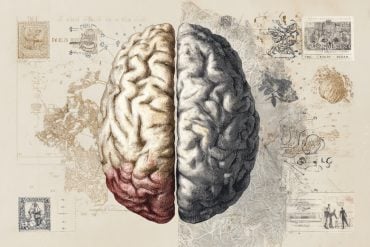Summary: Older men who experience higher blood pressure at night could be at a higher risk of Alzheimer’s disease.
Source: Uppsala University
Higher blood pressure at night than in daytime may be a risk factor for Alzheimer’s disease in older men.
This is suggested by a new study from researchers at Uppsala University, now published in the journal Hypertension.
‘Dementia’ is an umbrella term used to describe a category of symptoms marked by behavioural changes and gradually declining cognitive and social abilities. Numerous factors, including hypertension (high blood pressure), affect the risk of developing these symptoms.
Under healthy conditions, blood pressure (BP) varies over 24 hours, with lowest values reached at night. Doctors call this nocturnal blood pressure fall ‘dipping’. However, in some people, this BP pattern is reversed: their nocturnal BP is higher than in daytime. This blood pressure profile is known as ‘reverse dipping’.
“The night is a critical period for brain health. For example, in animals, it has previously been shown that the brain clears out waste products during sleep, and that this clearance is compromised by abnormal blood pressure patterns. Since the night also represents a critical time window for human brain health, we examined whether too high blood pressure at night, as seen in reverse dipping, is associated with a higher dementia risk in older men,” says Christian Benedict, Associate Professor at Uppsala University’s Department of Neuroscience, and senior author of the study.

To test this hypothesis, the researchers used observational data from one thousand Swedish older men, who were followed for a maximum of 24 years. The included men were in their early seventies at the beginning of the study
“The risk of getting a dementia diagnosis was 1.64 times higher among men with reverse dipping compared to those with normal dipping. Reverse dipping mainly increased the risk of Alzheimer’s disease, the most common form of dementia,” says Xiao Tan, postdoctoral fellow from the same department and first author of this research.
“Our cohort consisted only of older men. Thus, our results need to be replicated in older women,” concludes Benedict.
According to the researchers, an interesting next step would be to investigate whether the intake of antihypertensive (BP-lowering) drugs at night can reduce older men’s risk of developing Alzheimer’s disease.
About this Alzheimer’s disease research news
Source: Uppsala University
Contact: Xiao Tan – Uppsala University
Image: The image is in the public domain
Original Research: Closed access.
“Reverse Dipping of Systolic Blood Pressure Is Associated With Increased Dementia Risk in Older Men: A Longitudinal Study Over 24 Years” by Christian Benedict et al. Hypertension
Abstract
Reverse Dipping of Systolic Blood Pressure Is Associated With Increased Dementia Risk in Older Men: A Longitudinal Study Over 24 Years
A lower day-to-night systolic blood pressure (BP) dip has previously been associated with poor brain health and cognitive functions. Here, we sought to examine whether reduced (nighttime/daytime ratio of systolic BP >0.9 and ≤1) and reverse (nighttime/daytime ratio of systolic BP >1) dipping of systolic BP is associated with the prospective risk of being diagnosed with any dementia in Swedish older men. Twenty-four-hour ambulatory BP monitoring was used to estimate the nocturnal systolic BP dipping status of men at mean age 71 (n=997; 35% on antihypertensive medication) and 77.6 (n=611; 41% on antihypertensive medication). Dementia incidence during the observational period up to 24 years (n=286 cases) was determined by reviewing participants’ medical history and independently confirmed by at least 2 experienced geriatricians. Using time-updated Cox regression (ie, time-updated information on covariates and exposure), we found that reverse systolic BP dipping was associated with a higher risk of being diagnosed with any dementia (adjusted HR, 1.64 [95% CI, 1.14–2.34], P=0.007) and Alzheimer’s disease (1.67 [1.01–2.76], P=0.047) but not vascular dementia (1.29 [0.55–3.06], P=0.559). In contrast, reduced dipping of nocturnal systolic BP was not associated with a higher risk of being diagnosed with dementia. Our findings suggest that reverse systolic BP dipping may represent an independent risk factor for dementia and Alzheimer’s disease in older men. Future studies should decipher whether therapies lowering nocturnal systolic BP below daytime levels, such as bedtime dosing of antihypertensive medication, can meaningfully curb the development of dementia.






